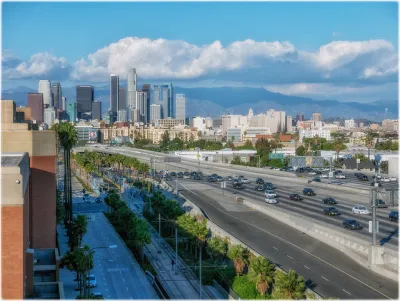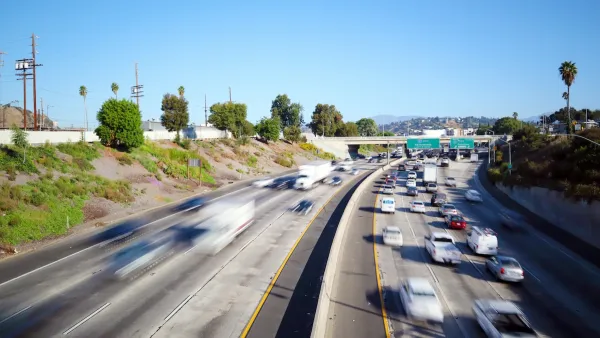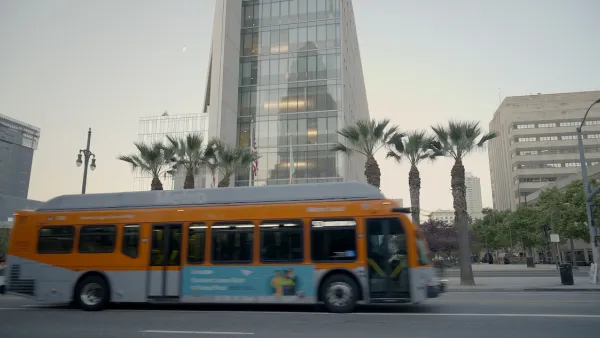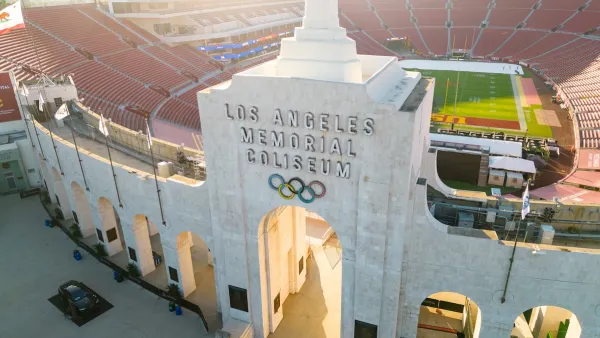L.A. Metro’s plan to add hundreds of miles of new traffic lanes is projected to increase carbon emissions by 10 million metric tons.

In an op-ed for the Los Angeles Times, founder of Streets for All Michael Schneider argues that despite a plan to build more than 100 miles of rail and new bus and bike lanes, the Los Angeles County Metropolitan Transportation Authority (Metro), with its current transportation plan, will encourage people to drive more miles.
According to Schneider, “just as Metro is spending tens of billions building rail and bus projects, it also plans to spend billions adding 363 miles of new highways and arterials. According to Metro’s own calculations based on state standards, this will increase vehicle miles traveled by up to 36.8 billion, and emit an additional 10.1 million metric tons of CO2”—more than three times the number of miles driven that Metro could eliminate through its. transit efforts. As Schneider puts it, “The expansion of highways will do far more harm than the expansion of mass transit will avert.”
Huge investments of the past have shown the folly of expanding highways to address traffic congestion. In the recent past, we spent $1 billion to add a lane in each direction onto the 405 in West Los Angeles. In less than 12 months, traffic had grown worse than it was before the project
Schneider writes, “If Metro is serious about building a more sustainable future, it must stop investing in expanding highways.” and instead invest in projects that make it easier for Angelenos to use transit, walk, and bike safely.
FULL STORY: Op-Ed: L.A. is spending tens of billions of dollars to make climate change and traffic worse

National Parks Layoffs Will Cause Communities to Lose Billions
Thousands of essential park workers were laid off this week, just before the busy spring break season.

Retro-silient?: America’s First “Eco-burb,” The Woodlands Turns 50
A master-planned community north of Houston offers lessons on green infrastructure and resilient design, but falls short of its founder’s lofty affordability and walkability goals.

Delivering for America Plan Will Downgrade Mail Service in at Least 49.5 Percent of Zip Codes
Republican and Democrat lawmakers criticize the plan for its disproportionate negative impact on rural communities.

Test News Post 1
This is a summary

Test News Headline 46
Test for the image on the front page.

Balancing Bombs and Butterflies: How the National Guard Protects a Rare Species
The National Guard at Fort Indiantown Gap uses GIS technology and land management strategies to balance military training with conservation efforts, ensuring the survival of the rare eastern regal fritillary butterfly.
Urban Design for Planners 1: Software Tools
This six-course series explores essential urban design concepts using open source software and equips planners with the tools they need to participate fully in the urban design process.
Planning for Universal Design
Learn the tools for implementing Universal Design in planning regulations.
EMC Planning Group, Inc.
Planetizen
Planetizen
Mpact (formerly Rail~Volution)
Great Falls Development Authority, Inc.
HUDs Office of Policy Development and Research
NYU Wagner Graduate School of Public Service





























